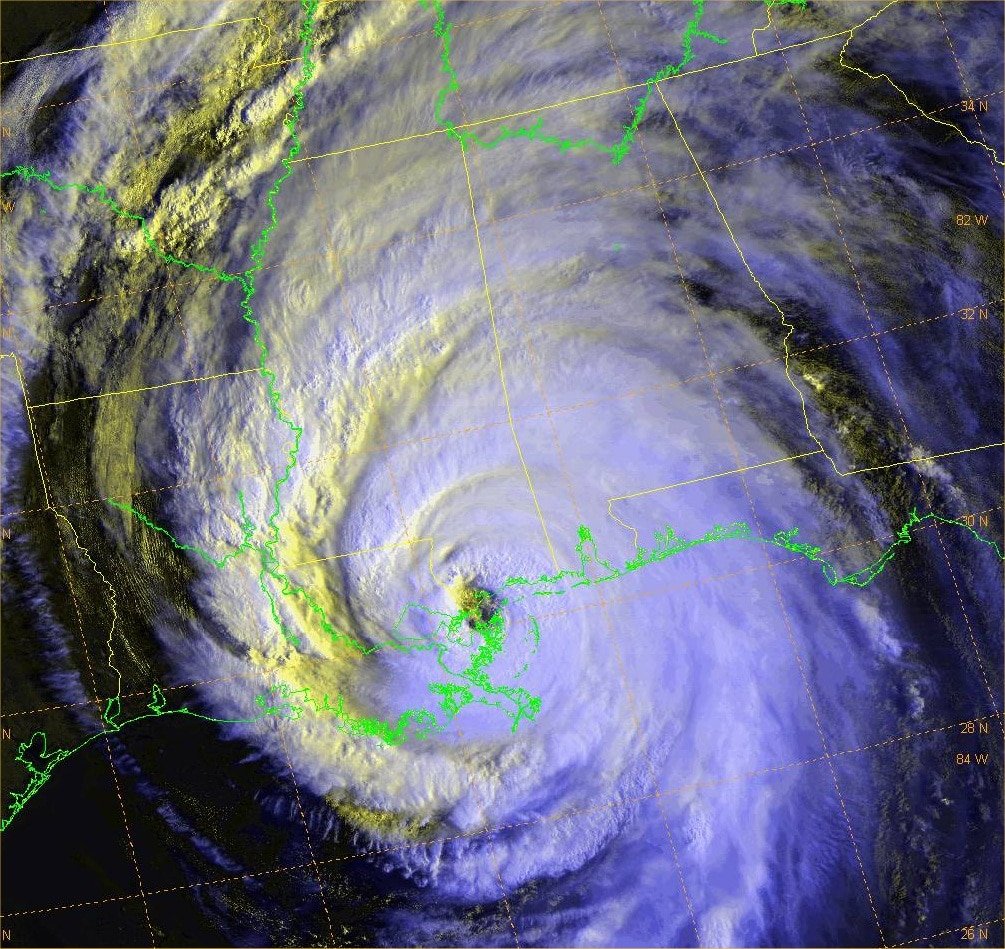Don Rumsfeld’s Failed Correction for 9/11
By Trowbridge H. Ford … edited by Jim W. Dean
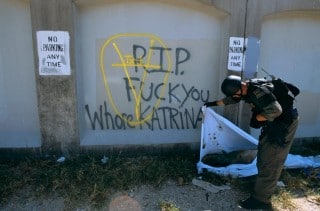
The Bush administration, especially the Pentagon’s Donald Rumsfeld and Director of Central Intelligence Porter Goss, was most concerned about public and media reaction to Hurricanes Katrina and Rita.
They worried that they might be seen as the culmination of their covert operations coming home to roost, thanks to what Naomi Klein had written in The Nation the previous spring.
Her article about the rise of disaster capitalism, and what former Malaysian President Mohammad Mahathir had been feared alluding to before a conference on the environment at Kuala Lumpur shortly after the disasters might tip the scales.
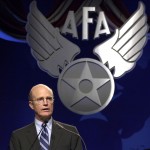
The Secretary of Defense had appointed Peter Geren – a slimy former Congressman hoping to take advantage of Anadarko Petroleum’s windfall profits in the Gulf while attempting to mobilize the country behind the Christian Embassy’s crusade against Islam.
As Acting Air Force Secretary, Geren could provide cover for the air cowboys in the National Reconnaissance Office while they heated up the Loop Current in front of the hurricanes by an ionospheric heater for strategic purposes.
Under the leadership of its new Director, Dr. Donald M. Kerr, who had been sent over from the Agency by Goss, their operations would have a veneer of authenticity.
The Defense Secretary had been itching for such a comeback ever since it had been caught completely flatfooted by the 9/11 attacks on the World Trade Center and the Pentagon.
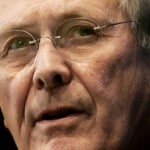
Just before the first plane hit the North Tower, Rumsfeld had been speaking to a select group of military leaders at a morning breakfast in the Pentagon.
They were still recovering from the speech the previous day in which he declared war on the Pentagon’s bureaucracy, and Republican Congressmen about the possibility of such an attack occurring.
He did not realize that the feared event had just happened because of him and the CIA only assuming that the assailants were only hijackers when they turned out to be suicide bombers, hitting the very center where the fight back was to come from.
For more of the incredible confusion, here is this time line of activity there on the fatal morning.
Never in the history of the United States had the political leader, responsible for protecting the country from foreign attack, been more humiliated. While addressing the Chiefs of Staff of the various services who had been completely kept in the dark about what was afoot, Rumsfeld’s chickens had come home to roost with unparalleled vengeance.
The scene was what Marine Commandant General James L. Jones had long envisioned because of Rumsfeld’s always driving the Department’s agenda politically.
Jones even declined to be interviewed for replacing General Hugh Shelton as Chairman of the Joint Chiefs of Staff when his term ended, and celebrate General John Jumper on becoming Air Force Chief of Staff on this happy note just before the 9/11 attacks:
“Welcome to the most disappointing group you’ll ever be associated with. Military advice is compromised by political leadership.It doesn’t emerge. ” (Quoted from Bob ‘Woodward, State of Denial, p. 71:)
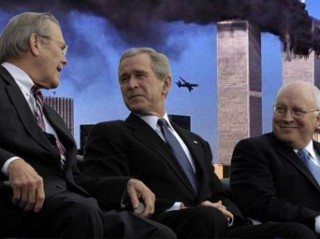
After the first plane hit the North Tower, the breakfast was soon adjourned, and by the time the second plane hit the South Tower, it had been cancelled.
Deputy Chairman of the Joint Chiefs, Air Force General Richard Myers, who would take Shelton’s place, was sent scurrying off to Senator Max Cleland’s office to explain away the bad news.
Myers later explained to Woodward. “If you can’t stand it, then you’ve got other options. You can retire.” (Quoted from p. 73.)
Chief of Naval Operations Admiral Vern Clerk after he had retired told Deputy Chairman of the JCS General Peter Pace that the job of Chairman would eat him up if he accepted it as it merely entailed doing what Rumsfeld wanted, and it did after he took it. (Ibid.p. 405ff.)
It was hardly surprising that after all the payback for the 9/11 attacks had been handed out in Afghanistan and Iraq, along with their own blowback, that the Bush administration became increasingly worried after the President’s re-election that the administration would lose control of Congress.
Bush and Cheney were always wanting body counts to show that it was winning there despite continuing reports of incredible carnage on both sides. In July 2006, Rumsfeld would not even tell Woodward that the allies were winning in Iraq:
” ‘The enemy can move swiftly, he said.’ They don’t have parliaments and bureaucracies and real estate to defend and interact with or deal with or cope with. They can do what they want. They aren’t held accountable for lying and killing innocent men, women and children.” (Quoted from ibid., p. 486.)
In a second interview Woodward had with the Defense Secretary, he sounded so weak, and out of the chain of command that he left Woodward speechless. Instead of his being two or three steps removed from it, Woodward declared:
“He is control – not the Joint Chiefs, not the uniformed military, not the NSC or the NSC staff, not the critics or the opiners. How could he not see his role and responsibility?” (pp. 487-8)
If the American people only knew how difficult it was to run their government, Rumsfeld had said earlier, they would “…understand the extent to which the current system of government makes competence next to impossible.”
The only hope that Rumsfeld and others in the administration could see redressing its most difficult condition was the American electorate somehow voting for it in the 2006 congressional elections despite Bush only being in denial about the whole situation.
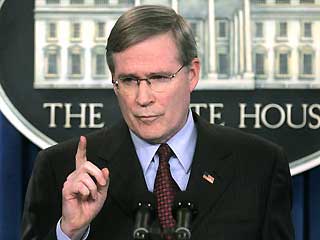
“I’ve got to help the president get through what is going to be a really rugged three years,” National Security Adviser Stephen Hadley had earlier admitted but would not expand upon when asked.
“And if the Democrats take over the House and the Senate it’s going to be unbelievable after 2006.” (Quoted from p. 491.)
To remedy the desperate situation, Rumsfeld decided again to do the military’s job for them – what is best described in the infamous records of Operation Northwoods.
“According to secret and long-hidden documents obtained for Body of Secrets,” James Bamford wrote, “the Joint Chiefs of Staff drew up and approved plans for what may be the more corrupt plan ever created by the U. S. Government.” (p. 82)
They envisioned everything from making it look like the Cubans had shot down John Glenn’s risky orbiter circling the globe if it failed to replaying the sinking of a ship around Cuba, like the battleship Maine back in 1898, with all hands to rouse American public opinion for the elimination of Castro and his Cuban revolution.
These plans were followed by ones calling for alleged Castro terror campaigns in cities along America’s south coast through the use of refugees seeking shelter in the States, making it look like the Cuban fighters had shot down an American airliner in the area.
And finally a drone CIA airplane, filled with explosives rather than passengers, taking the place of a regularly scheduled flight on its way to Cuba, and while it hightailed its way back to Elgin AFB, the drone would be blown up after transmitting “May Day” calls, indicating that it was under attack.
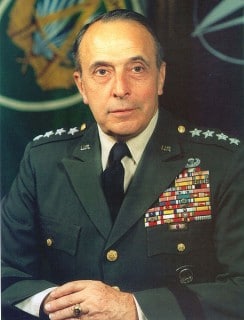
The plans were the creation of JCS Chairman Lyman L Lemnitzer and his associates.
President Eisenhower had given the project the go-ahead during his last days in office, hoping to get rid of the Cuban regime as the crowning achievement of his presidency, and was continued behind the backs of the Kennedy administration until it finally learned of it, and had it stopped.
Secretary of Defense Robert McNamara, Rumsfeld’s model, treated the crazy Lemnitzer as a school boy who was not to be taken seriously, and wasn’t.
The only difference this time was that Rumsfeld would use space weapons of the Pentagon’s National Reconnaissance Office rather than its special forces, feigning to be Cubans.
The heating up of tropical storm Katrina was a revamped version of what the discontinued Project Stormfury had attempted until 1982 by eye replacement of hurricanes and cyclones by seeding them with silver iodide in the hope of dispersing them by causing their supercooled water to freeze.
The biggest source of difficulty was that they already had too much frozen crystals, so the solution was heating up their eyes so that the crystals became supercooled water.
The Air Force was able to do when it passed over Key West, and then went into the Gulf which had been heated to unprecedented temperatures by the NRO’s ionospheric heater, creating a mammoth storm surge which swept aside everything in its way.
It became the most costly in US history, causing $81 billion in damage, and killing 1,836 people, mostly around New Orleans. Its victims would have been even worse than the terrible 1928 one if it had not been for all the warnings about what was coming.
While Rumsfeld was sure that Katrina, like the shooting of John Lennon, would have the populace craving public help and protection, it had just the reverse effect because of federal, state, and city authorities were incapable of doing almost anything, especially in a coordinated way, to relieve the suffering.
It was another example of his ‘stock and awe’ plans for solving everything, and this time the government paid dearly for it.
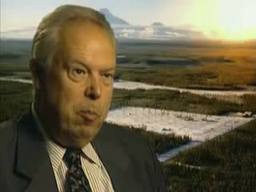
It just sounded too much like what Eastlund had boasted about what his inventions in weather modification could achieve.
The fallout was certainly enough for Chairman of the JCS General Richard Myers to finally announce his retirement on October lrst before the Congressional campaign was really heating up.
When the voting took place, Rumsfeld himself followed as the Democrats had regained control of the House in an unprecedented way.
They ousted the Republicans without losing any incumbent, and picking up all the unfilled or independently-held seats. The nightmare situation was now basically Hadley’s to deal with.
Malaysian President Mahathir’s prepared remarks around the same time had been completely sidetracked, though, by a walkout by the Anglo-American diplomatic delegation – apparently triggered by fears that he would give the lowdown on how tropical depressions, ending with Zoé in the Pacific, had been cooked up into cyclones and hurricanes – resulting in an off-the-cuff diatribe about American and British war crimes in Afghanistan and Iraq.
Klein had alluded in her article to the “Acts of God or Acts of Bush (on orders from God)” which had created disasters from “Iraq to Aceh, Afghanistan to Haiti”. The island republic suffered in 2005 its worst hurricane damage in history, starting with Hurricane Dennis, which killed at least 40 Haitians and left 15,000 homeless.
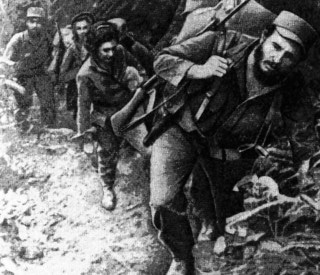
Still, Fidel Castro made up for Mahathir not saying more about the Katrina disaster by offering the aid of hundreds of doctors, and tons of medical supplies to Katrina’s victims.
He had already done this for the hundreds of thousands victims of the Indian Ocean tsunamis, indicating that America’s chickens in weather manipulation had truly come home to roost.
The offer was so telling that the White House refused it, telling the Cuban leader to give his own people freedom instead.
Cuban had avoided its own cockup over the disaster, surprisingly reminiscent of the 9/11 attacks, by learning to coordinate an effective response to such predictable hazards.
Fortunately, for the Pentagon and the Agency, Klein preferred in her article, “Let the People Rebuild New Orleans“ in the September 26th issue of The Nation, to see Katrina’s wake as an opportunity for democracy rather than the result of institutionalized recipes for disaster – what had been the norm for almost all disasters whether they had been natural or man-made in origin.
There was no hint that the hurricane was just another example of “vulgar colonialism”, to quote Shalmali Guttal from her earlier piece – a clean slate to be reconstructed by the parallel governments of disaster capitalism as it saw fit. In fact, Klein never even used the term, and has rarely done so since.
The people of New Orleans, according to Klein, would not go quietly in the night, “…scattering across the country to become homeless in countless other cities while federal relief funds are funneled into rebuilding casinos, hotels, and chemical plants…” Community Labor United, a coalition of low-income groups in New Orleans, would not let the area be treated as if it were some third-world disaster site.
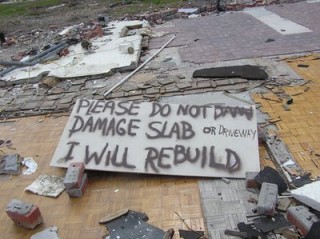
The $10.5 billion provided by Congress and the $500 million raised by charities, Klein added, belonged to the victimized people, and they should be allowed to use it in ways they saw fit, not like what happened to the people of Sri Lanka after the devastating Indian Ocean tsunami.
If the inhabitants of Mexico City could force their government to rebuild their community after the devastating earthquake in 1985, the people of New Orleans could do the same.
Unfortunately, this proved to be a complete pipe dream, as Klein herself duly recorded in The Shock Doctrine: The Rise of Disaster Capitalism, though the role of disasters – hurricanes, cyclones, and earthquakes – were sorely missing in helping explain the process until it came to Katrina.
There was no mention of the consequences of any cyclone, especially Cyclone Zoé, which had wreaked such physical, financial and social havoc in the Western Pacific and Indian Ocean whatever their cause.

There was no mention of other hurricanes which had regularly pounded Cuba, not even the devastation caused to the island by Katrina – only what Hurricane Mitch had conveniently done by mass flooding to the troublesome states of Honduras, Nicaragua, and Guatemala in Central America in October 1998. (pp. 500-1)
And earthquakes – especially the ones in Iran around the Manjil-Rudbar area, and in the ancient city of Bam in anticipation of the two Gulf Wars, and the one in Turkey at Izmit in 1999, whatever caused them – were surprisingly not included among the tactics of disaster capitalism.
Shock doctrine, the less insidious term according to the expert on the subject, was essentially caused by various neo-cons, especially from Chicago and Harvard Universities, who persuaded Southern Cone dictators to adopt unfettered capitalism whatever the cost and consequences.
When they were overthrown, their successors liquidated their debts by essentially scrapping whatever was required at great social and economic cost to satisfy lenders, particularly the IMF and the World Bank
“Believers in the shock doctrine,” she conveniently concluded, “are convinced that only a great rupture – a flood, a war, a terrorist attack – can generate the kind of vast, clean canvases they crave.” (p. 25. N. b. the examples she chooses.)
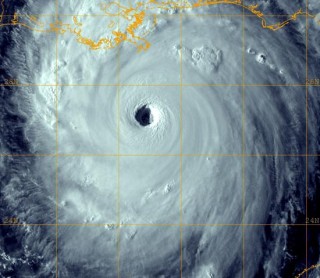
This was all the more amazing since she finally concluded that the devastation to the Gulf coast by Katrina was the best example of disaster capitalism, with its Green and Red Zones of parallel infrastructures for rich and poor, and at the expense of established government:
“Under Bush, the state still has all the trappings of a government – the impressive buildings, presidential press briefings, policy battles – but it no more does the actual work of governing than the employees at Nike’s Beavereton campus stitch running shoes.” (p. 528)
In saying all this, her September 2005 article about letting the people rebuild New Orleans is nowhere to be seen.
It is only when the reader finally digests Klein’s thick tome that one realizes that Rumsfeld is the biggest practitioner of disaster capitalism (p. 165), though no examples were provided, only the steps that Bush should adopt if the shock doctrine for the Gulf area did not work about as planned with the electorate:
“Tucked into its ( the Defense Authorization Act’s) fourteen hundred pages is a rider that went almost completely unnoticed at the time. It gave the president the power of declare martial law and ’employ the armed force, including the National Guard,’ overriding the wishes of state governors, in the event of a ‘public emergency’ in order to ‘restore public order’ and ‘suppress’ the disorder.
That emergency could be a hurricane, a mass protest or a ‘public health emergency,’ in which case the army could be used to impose quarantines and to safeguard supplies. Before this act, the president had these martial law powers only in the face of an insurrection.” (p. 390)
Rumsfeld’s legacy is that he always had to have his way, even when it came to dealing with the President – what ultimately led to his undoing.
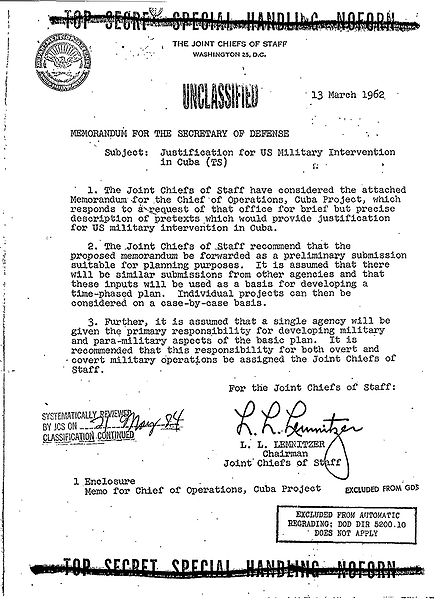
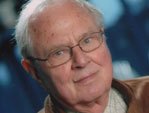
Trowbridge Ford (1929 – 2021) was the son of William Wallace Ford, the father of the US Army’s Grasshoppers.
He attended Phillips Exeter Academy, and Columbia University where he received a Ph.D. in political science after a stint in the Army’s Counter Intelligence Corps as a draftee during the Korean War, and after being discharged, worked as the sports editor and a reporter for the now-defunct Raleigh Times.
Thought academia was the thing for him. He was quite satisfied teaching all kinds of courses about European and American politics while writing his dissertation about an under-appreciated British politician, Henry Brougham, who became the Lord Chancellor of the famous Reform Government (1830-34).
At the same time, Trowbridge became most interested in the role that A. V. Dicey, a famous Oxford legal professor, played in settling the Irish question – another figure that historians didn’t think did much about. It was while he was doing research on the dissertation at the British Museum in London that President Kennedy was assassinated, and it slowly led him to take a dimmer view of academic life, especially when joined by campus protests over the growing Vietnam War. He was fired by two institutions of higher learning because of his protests against the war.
When the Vietnam War finally ended, he got involved in researching the Dallas assassination, and his first serious efforts about it appeared in Tom Valentine’s The National Exchange in 1978 – what Fletcher Prouty thought was quite good, just urging him to go higher in the Agency and the political world for the main culprits.
He slowly started doing this, ultimately deciding to retire early in 1986, planning on finishing his Brougham biography while living in Portugal. While he did this, he had made too many enemies with the White House not to be punished – first by attempts to establish that he maliciously tried to destroy Richard Nixon during Watergate by libeling him, and when he died, DCI George Tenet tried to have me killed by poisoning – what would make his death look like a suicide or a natural one.
As a result of this, once he had finally determined the cause, he moved to Sweden to not only save his skin but also investigate and write about assassinations, covert operations, ‘false flag’ deceptions, preventive wars, weapons development, and their use, etc. He passed away in 2021.
ATTENTION READERS
We See The World From All Sides and Want YOU To Be Fully InformedIn fact, intentional disinformation is a disgraceful scourge in media today. So to assuage any possible errant incorrect information posted herein, we strongly encourage you to seek corroboration from other non-VT sources before forming an educated opinion.
About VT - Policies & Disclosures - Comment Policy

